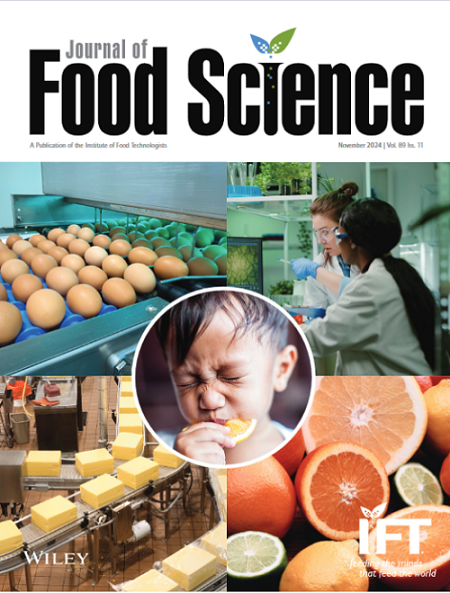Deoxynivalenol modulated mucin expression and proinflammatory cytokine production, affecting susceptibility to enteroinvasive Escherichia coli infection in intestinal epithelial cells
Abstract
Deoxynivalenol (DON) is a common mycotoxin in crops that could induce intestinal inflammation, affecting the susceptibility of intestinal epithelial cells (IECs) to pathogen infection. This study aimed to investigate DON's effects on mucin and cytokine production as part of the local immune system and how it affected intestinal susceptibility to pathogen infection. Caco-2 cells were exposed to DON followed by acute enteroinvasive Escherichia coli (EIEC) infection. An increase in EIEC attachment to DON-exposed cells was observed, probably in part, mediated by secretory MUC5AC mucins and membrane-bound MUC4 and MUC17 mucins. Additionally, DON with EIEC posttreatment led to significant changes in the gene expression of several proinflammatory cytokines (IL1α, IL1β, IL6, IL8, TNFα, and MCP-1), which may be in part, mediated by NK-κB and/or MAPK signaling pathways. These data suggested DON may exert immunomodulatory effects on IECs, altering the IEC susceptibility to bacterial infection.
Practical Application
The results suggested that DON might modulate immune responses by affecting mucus and cytokine production, which may affect the susceptibility of intestinal epithelial cells to pathogen infection.


 求助内容:
求助内容: 应助结果提醒方式:
应助结果提醒方式:


